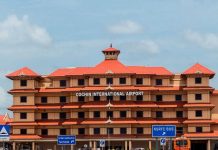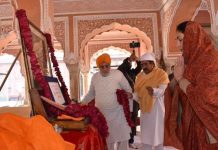Since the collapse of the Soviet Union over two decades ago, India has increasingly acquiesced to Washington’s paternalism in a bid to be the superpower’s bulwark in South Asia. Critics have long protested that India was turning servile to the Americans on issues of security, geopolitics, commerce and agriculture, among others. New Delhi touched a new low in that view this week when it claimed that the American surveillance of Indian embassy’s Internet and phone usage in that country did not amount to snooping. That claim by External Affairs Minister Salman Khurshid came a day after a news agency reported India’s rejection of a request for asylum from Edward Snowden, an American whistleblower who stunningly revealed last month that American intelligence agencies have been carrying out widespread global surveillance of governments and intergovernmental organisations.
To the critics, India’s lighthearted view of the American transgression appears even more misplaced when compared with reactions in America’s stauncher allies, the European Union, Germany and France, who, too, the Americans snooped upon and whose indignant uproar has forced a reluctant US President Barack Obama to promise a probe to quantify the damage from the surveillance. Not to speak of the defiance of China, which refused to be browbeaten by America when it demanded that Beijing pressure Hong Kong, where Snowden first surfaced after his leak, to hand him over; or of Russia, where the leaker is holed out while Moscow faces off America’s bullying.
In a rare transatlantic kerfuffle, the traditional US allies in Europe, in fact, threatened to withhold an imminent trade pact if Washington did not roll back its surveillance of friendly countries. In contrast, India’s meek acceptance of the US surveillance of its embassy reflects a desire to be more loyal than the king and not to upset the American establishment, come what may. This erodes India’s credibility as a sovereign equal in the comity of nations and makes it appear as a client State. It also betrays New Delhi’s failure to understand that, in the international arena, being perceived as weak is worse than being weak. Doubtless, the effects of this cave-in will surface soon.
For one, few sources and contacts, official and informal, would now talk freely with Indian officials across the world. For if the embassy in Washington DC is not secure enough, then missions across the planet are less likely to be so. (Remember the howls from the US when WikiLeaks disclosed secret diplomatic cables sent to Washington by American embassies from across the world? American officials had slammed the disclosure saying it had compromised the safety and security of its officials and informers.)
Such caution in their interactions with India would be most damaging from the governments of big countries with whom India has complex and delicate relationships, such as China, or strategic and military ones, such as Russia. Such interactions beg to be conducted in utmost privacy to facilitate results from long-drawn-out negotiations. But with India turning a blind eye to the snooping, neither Moscow nor Beijing, which are both ever suspicious of Washington’s attitudes towards them, would easily open up to the Indian officials. Even the West Europeans, who are regular dining partners with the Americans, would be careful in their day-to-day interactions with Indian officials.
Secondly, and more dangerously, the urge to brush the snooping under the carpet means that the Indian government will never fully know how much of its privileged information is already compromised. To be sure, Obama rushed in to say that his snoops did not hack the content of all the mails exchanged or the telephone calls made but only their logs. But when the US officials defended the surveillance by claiming it helped thwart terrorist attacks globally, they also tacitly acknowledged that they can and do access some of that material. By failing to press the Americans to disclose the material they have from the Indian embassy, New Delhi is allowing the US a free pass to continue that surveillance and hack its mails and phone calls, if not more.
The Indian response is hardly surprising. It is of a piece with New Delhi’s fawning behaviour towards Washington, an embarrassing example of which came five years ago when Prime Minister Manmohan Singh said to the then US president: “Mr Bush, the people of India deeply love you.” It is a pity that when smaller nations such as Ecuador, Bolivia, Venezuela and even Pakistan and Afghanistan, which are dependent on American munificence, duel with the US aggressively, India cannot but continue to see Washington as its lodestar despite the latter’s waning global influence.
ajit@tehelka.com









